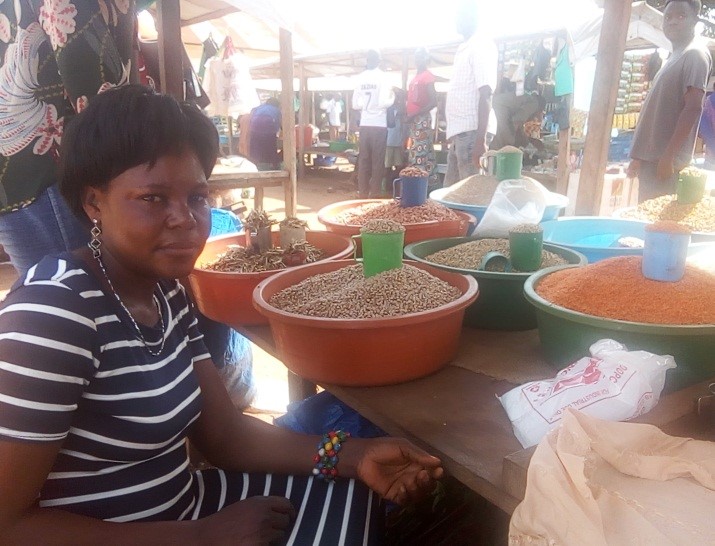Female-Headed households in South Sudan bear the brunt of Covid-19 as livelihoods shrink
Since 2018, UN Women through its partner Change Agency Organization (CAO) has been running a livelihood and GBV protection programme funded by the Government of Germany. The programme has reached out to 3,650-target population, 2,980 being women.Date:

Margret Raman, 38, a single mother of five, two boys and three girls, is one of the several women in Yambio, South Sudan who is bearing the brunt of the Covid-19 pandemic. “Since the announcement of Covid-19, our lives have never been the same. Since we received business and financial management skills from UN Women, our businesses have been growing only to be disturbed by Covid-19. The social distancing and other restrictions, associated with Covid-19 have slowed our lives down. The market is empty, and we sell very little at the end of the day.
“Under normal situations I make about SSP 28,000 ($100) in a week, which has recently been reduced to below half, SSP 10,000 ($34) a week. With this money, I have suspended some of the activities I planned to do this year. For instance, as the rainy season sets in in South Sudan, I had planned to buy seeds and increase my acreage of maize so that I can have food security and sell some maize to World Food Programme (WFP) at the end of the season. However, with dwindling savings, and like many other women in South Sudan I have to eke out a living, and ensure that my five children have food at the end of the day,” she narrates with fear weighing her down.
Margret belongs to Anigi Village Savings Group and in the context of Covid-19, the group decided to continue meeting and saving, while following the Covid-19 guidelines on social distancing. Thus the group has agreed to have only the executive committee members meet on behalf of the rest of the group members to calculate savings and administer loans. “In the meantime, savings and lending continues, as this is the only way to secure our small businesses," she narrates, with a brave smile on her face.
Margret is not alone in this situation. The Covid-19 crisis in South Sudan is posing a serious threat to women’s engagement in economic activities, especially in informal sectors where women constitute the majority of the work force. Abrupt travel bans and restrictions are raising the prices of products and threating the livelihoods, food security and wellbeing of many women and their households. In South Sudan, most businesses operated by women are overwhelmingly micro or small sized. As such, compared to their male counterparts women business owners must continue to contend with unique and disparate sets of already existing challenges, in the context of Covid-19, in order to grow their enterprises and improve their livelihoods.